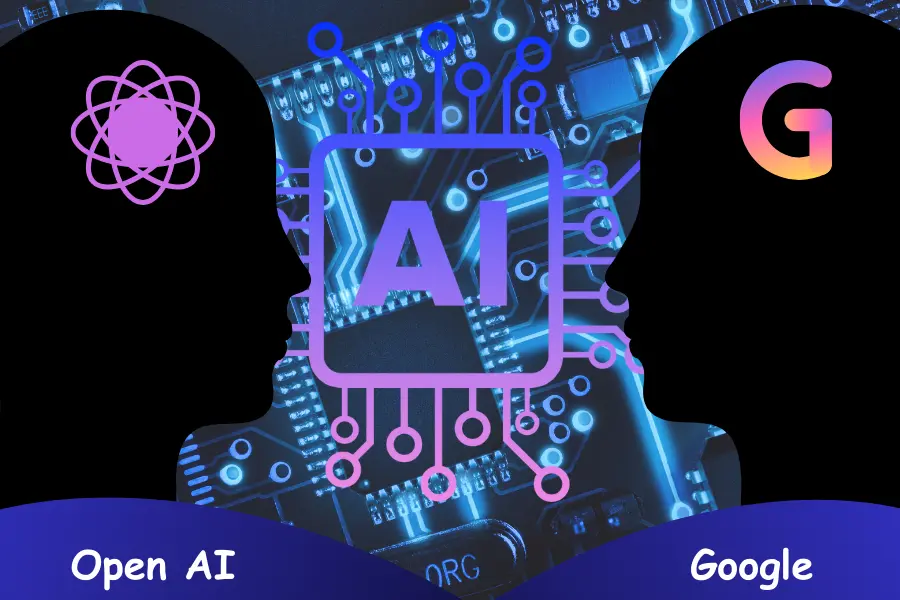How Google Uses AI to Maintain Search Engine Dominance Globally
Google's dominance in the search engine market is largely attributable to its sophisticated use of Artificial Intelligence (AI). AI technologies underpin many of the key components of Google’s search engine, enhancing its ability to deliver relevant, timely, and precise search results. Here’s an in-depth look at how Google leverages AI to maintain its global leadership.

1. Search Ranking and Relevance
One of the primary ways Google uses AI is through its search ranking algorithms. The core of this system is the RankBrain algorithm, an AI-powered component of Google's search algorithm that helps process search queries. RankBrain uses machine learning to understand the context and intent behind users' queries, even if they are vague or unusual. It can interpret the meaning of words and phrases, allowing Google to return more relevant results.
Additionally, BERT (Bidirectional Encoder Representations from Transformers), another AI model, enables Google to better understand the nuances and context of words in search queries. BERT processes words in relation to all the other words in a sentence, rather than one-by-one in order. This deep contextual understanding allows Google to improve search accuracy significantly, particularly for long-tail and conversational queries.
2. Personalization
Google uses AI to personalize search results based on individual user behavior and preferences. User data, such as past search history, location, and interaction with previous search results, is analyzed to tailor search outcomes to each user. For instance, if a user frequently searches for tech-related content, Google's AI algorithms will prioritize tech news and websites in future searches.
Neural matching is another AI technology Google employs to improve personalization. It helps Google better match queries with relevant pages by understanding the relationship between words and concepts at a deeper level.
3. Voice Search and Natural Language Processing (NLP)
With the rise of voice-activated search through devices like Google Home and Google Assistant, AI has become even more crucial. Natural Language Processing (NLP) and Automatic Speech Recognition (ASR) technologies enable Google to understand and process spoken language accurately. AI algorithms interpret voice queries by recognizing speech patterns and context, delivering relevant search results as if the queries were typed.
4. Real-Time Data and Updates
Google's AI capabilities extend to real-time data processing, which is crucial for delivering up-to-date search results. For instance, during breaking news events, Google's AI algorithms can quickly identify and prioritize fresh, relevant content. Real-time indexing ensures that the most current information is available to users, maintaining Google's reliability as a source of timely information.
5. Image and Video Search
AI also enhances Google’s image and video search capabilities. Computer vision technologies allow Google to analyze and understand the content of images and videos, beyond just the metadata. For example, Google Lens uses AI to recognize objects within images, enabling users to search for information based on a photo. Similarly, AI algorithms can analyze video content to provide more accurate and relevant video search results.
6. Spam Detection and Quality Control
Maintaining the quality and reliability of search results is paramount for Google. AI-driven spam detection algorithms help identify and filter out low-quality or manipulative content. These algorithms use machine learning to recognize patterns and characteristics of spammy behavior, ensuring that search results are trustworthy and useful.
Google’s use of AI is fundamental to its ability to dominate the global search engine market. Through sophisticated algorithms like RankBrain and BERT, personalized search experiences, advanced NLP and voice search capabilities, real-time data processing, enhanced image and video search, and effective spam detection, AI ensures that Google remains the most accurate, reliable, and user-friendly search engine available. As AI technology continues to advance, Google’s integration of these innovations will likely keep it at the forefront of the search engine industry.
Active Events
3 Essential Projects to Elevate Your 5c of Content Marketing Portfolio
Date: Feburary 25, 2025 | 7:00 PM(IST)
7:00 PM(IST) - 8:10 PM(IST)
2432 people have registered
Best Tips to Create a Job-Ready Data Science Portfolio
Date: Feburary 26, 2025 | 7:00 PM(IST)
7:00 PM(IST) - 8:10 PM(IST)
2811 people have registered
Bootcamps
Digital Marketing Bootcamp
- Duration:4 Months
- Start Date:Feb 9, 2025
Data Analyst Bootcamp
- Duration:4 Months
- Start Date:Feb 9, 2025
